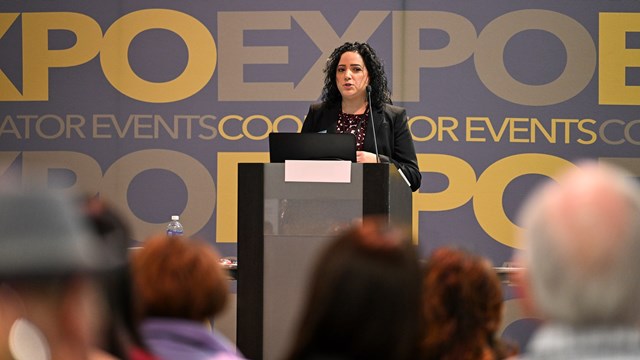The sad reality is that when a hurricane, flood or fire strikes, often the greatest damage is not caused by the crisis itself, but rather by poor decision making by boards in the aftermath of the event.
In the aftermath of a disaster or other crisis, communities are often inundated by individuals offering 'quick fixes' to the damages caused by the event. Some will offer to clean up the premises and restore the buildings for little more than a signature on a single-page 'agreement' signing over “all insurance proceeds” to the restoration company.
Some states have voided similar agreements finding them to be without merit. For a contract to be enforceable, it must be specific as to the compensation to be received and obligations to be performed—it must also state the scope of work to be performed for the proceeds received.
While cleaning up the premises is among the first actions which need to be addressed by the board after a damage event, waiving the building or association's legal rights is not. In the immediate aftermath of a storm or fire, the first order of business is accounting for the whereabouts of all residents. After that, concern shifts to cleanup, mitigation of water damage by drying out any wet areas that could lead to mold, and shoring up any openings in the structure such as blown-out windows or holes in the roof.
Avoiding Common Pitfalls
Common pitfalls that often plague associations following a hurricane include:
Disputes between insurance carriers (flood, windstorm, hazard) and the association over the nature and extent of damage, cost of repair or replacement, and/or whether appropriate mitigation steps were taken. It is important for the association to promptly file its proof of loss, and to be aware that if the insurer can prove that the association failed to cooperate or misrepresented the nature and extent of its claim, then no payment is due under the policy, regardless of the size of the claims. In addition, if the association commits fraud in the application for insurance or in the presentation of the claim, such act(s) can result in the loss of all coverage—not just the portion upon which the fraudulent claims are based.
Claims being made by unit owners against their boards over the mismanagement of insurance proceeds. The association has a fiduciary duty to the owners and their mortgages to exercise reasonable care in the management of the insurance proceeds and to hold the proceeds for the benefit of the owners and mortgages.
The association's failure to comply with a state’s Construction Lien Law, which means that the claims of contractors, subcontractors, material men and suppliers who were not paid by the general contractor can be made against the association, resulting in the association having to pay double.
Suits against contractors and subcontractors over poor quality repairs.
Restoring the Property
On television, within minutes of a disaster, an insurance adjuster appears on the screen with checkbook in hand. In the space of a thirty-second commercial, all claims are resolved, and the victims shower praise on the company’s quick response and positive attitude. While it does occasionally happen, it is an unlikely scenario. In a major disaster, it is rare, if not impossible, to fully assess the damages within such a short timeframe. In fact, the association should not seriously entertain a settlement until the full scope of work is known and costs ascertained.
Once conditions stabilize, building or HOA administrators will be in a position to meet with professionals trained in the disaster recovery, such as:
• Architect/Engineers – These people are responsible for assessing the damage, preparing plans and specification in accordance with new building codes, assisting in selection of construction manager and defining other reconstruction requirements.
• Construction Managers – These are brought in to oversee the selection of a general contractor, competitive bidding and administrators; they direct and coordinate pay requirements, change orders and all other activities of the parties, and resolve disputes.
• General Contractor(s) – He or she employs and supervises laborers, supplies materials and builds project in accordance with architect’s/engineer’s plans and specifications, under the direction of the construction manger.
• Attorney(s) – They will review construction contracts to insure adequate assurance of job performance and warranties, as well as compliance with applicable lien laws.
• Public Adjusters – In some instances, the assistance of an independent public adjuster may be beneficial when dealing with the nuances of an ambiguous insurance policy. While most adjusters will work for a fee based upon a percentage of the insurance proceeds, when the scope of assistance required is limited to specific items, the fee should be adjusted accordingly.
Once your disaster recovery team is assembled, you must review your governing documents—particularly, the “repair after casualty” section of the insurance provision. It is common to find language such as the following:
• Estimates of Costs – Immediately after deciding to rebuild or repair damage to property for which the association is responsible, the association shall obtain reliable and detailed estimates of the cost to rebuild or repair.
• Construction Fund – The construction fund shall be disbursed in payment of such costs in the manner required by the board of directors of the association upon approval by an architect qualified to practice in Florida and employed by the association to supervise the work.
When the aforesaid provisions exist in your documents, contracting for reconstruction prior to obtaining a scope of work will be contrary to both the association’s best interest, and the obligations set forth in the documents.
Money Matters
In order to respond to an emergency, the association may need to obtain a short-term loan. Without a restriction in the documents, not-for-profit community associations can borrow; however, they generally cannot pledge the condominium property as security. Most banks with which the association does business will approve a commercial line of credit secured by the association’s accounts and/or assessment and lien rights. The association also may obtain a small business administration loan that is available to victims of disaster, generally, at lower interest rates. Of course, reserve funds can also be utilized if approved by a majority of the total voting interests.
Haste Makes Waste
Following the damages it sustained from Hurricane Wilma, Miami-based Buckley Towers Condominium, Inc. [Buckley Towers] sued its insurance carrier, QBE Insurance Corp. for QBE’s failure to fund the cost of repairs. After trial in Federal District Court, a jury awarded Buckley Towers nearly $20 million.
At issue in the appeal was a provision in the insurance contract which required that Buckley Towers make actual repairs before seeking Replacement Cost Value (RCV) and law and ordinance damages. Although the trial court ruled that the doctrine of prevention of performance permitted Buckley Towers to recover RCV and law and ordinance damages, the Federal Court of Appeals reversed, holding that Buckley Towers failed to perform its duties under the contract. The Court noted in dicta that “The insurance contract clearly required that Buckley Towers make actual repairs before seeking Replacement Cost Value (12CV) and law and ordinance damages.
Having been a part of the settlement of hundreds of millions of dollars of casualty claims and observing those which were successful along with those which failed, my best advice is to not rush the process. Promptly file your claim of losses—but only after thoroughly reviewing your obligations with experienced attorneys and licensed engineers and contractors.
Gary Poliakoff is a founding shareholder of Becker & Poliakoff, P.A. with law offices throughout Florida, New York City, Washington, D.C. and New Jersey.







Leave a Comment